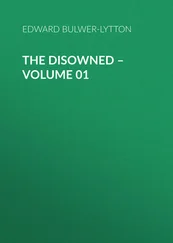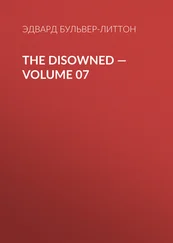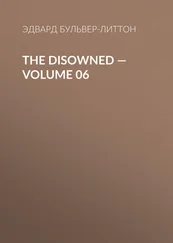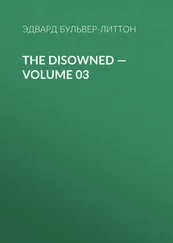Эдвард Бульвер-Литтон - The Disowned — Complete
Здесь есть возможность читать онлайн «Эдвард Бульвер-Литтон - The Disowned — Complete» — ознакомительный отрывок электронной книги совершенно бесплатно, а после прочтения отрывка купить полную версию. В некоторых случаях можно слушать аудио, скачать через торрент в формате fb2 и присутствует краткое содержание. Жанр: foreign_prose, literature_19, Европейская старинная литература, foreign_antique, на английском языке. Описание произведения, (предисловие) а так же отзывы посетителей доступны на портале библиотеки ЛибКат.
- Название:The Disowned — Complete
- Автор:
- Жанр:
- Год:неизвестен
- ISBN:нет данных
- Рейтинг книги:5 / 5. Голосов: 1
-
Избранное:Добавить в избранное
- Отзывы:
-
Ваша оценка:
- 100
- 1
- 2
- 3
- 4
- 5
The Disowned — Complete: краткое содержание, описание и аннотация
Предлагаем к чтению аннотацию, описание, краткое содержание или предисловие (зависит от того, что написал сам автор книги «The Disowned — Complete»). Если вы не нашли необходимую информацию о книге — напишите в комментариях, мы постараемся отыскать её.
The Disowned — Complete — читать онлайн ознакомительный отрывок
Ниже представлен текст книги, разбитый по страницам. Система сохранения места последней прочитанной страницы, позволяет с удобством читать онлайн бесплатно книгу «The Disowned — Complete», без необходимости каждый раз заново искать на чём Вы остановились. Поставьте закладку, и сможете в любой момент перейти на страницу, на которой закончили чтение.
Интервал:
Закладка:
or Disappointment and Satiety have hallowed their human griefs by a pathos wrought from whatever is magnificent and grand and lovely in the unknown universe; or the speculations of a great but visionary mind [Shelley] have raised, upon subtlety and doubt, a vast and irregular pile of verse, full of dim-lighted cells, and winding galleries, in which what treasures lie concealed! That was an age in which poetry took one path and contemplation another; those who were addicted to the latter pursued it in its orthodox roads; and many, whom Nature, perhaps intended for poets, the wizard Custom converted into speculators or critics.
It was this which gave to Algernon’s studies their peculiar hue; while, on the other hand, the taste for the fine arts which then universally prevailed, directed to the creations of painting, rather than those of poetry, more really congenial to his powers, the intense imagination and passion for glory which marked and pervaded the character of the artist.
But as we have seen that that passion for glory made the great characteristic difference between Clarence and Warner, so also did that passion terminate any resemblance which Warner bore to Algernon Mordaunt. With the former a rank and unwholesome plant, it grew up to the exclusion of all else; with the latter, subdued and regulated, it sheltered, not withered, the virtues by which it was surrounded. With Warner, ambition was a passionate desire to separate himself by fame from the herd of other men; with Mordaunt, to bind himself by charity yet closer to his kind: with the one, it produced a disgust to his species; with the other, a pity and a love: with the one, power was the badge of distinction; with the other, the means to bless! But our story lingers.
It was now the custom of Warner to spend the whole day at his work, and wander out with Clarence, when the evening darkened, to snatch a brief respite of exercise and air. Often, along the lighted and populous streets, would the two young and unfriended competitors for this world’s high places roam with the various crowd, moralizing as they went or holding dim conjecture upon their destinies to be. And often would they linger beneath the portico of some house where, “haunted with great resort,” Pleasure and Pomp held their nightly revels, to listen to the music that, through the open windows, stole over the rare exotics with which wealth mimics the southern scents, and floated, mellowing by distance, along the unworthy streets; and while they stood together, silent and each feeding upon separate thoughts, the artist’s pale lip would curl with scorn, as he heard the laugh and the sounds of a frivolous and hollow mirth ring from the crowd within, and startle the air from the silver spell which music had laid upon it. “These,” would he say to Clarence, “these are the dupes of the same fever as ourselves: like us, they strive and toil and vex their little lives for a distinction from their race. Ambition comes to them, as to all: but they throw for a different prize than we do; theirs is the honour of a day, ours is immortality; yet they take the same labour and are consumed by the same care. And, fools that they are, with their gilded names and their gaudy trappings, they would shrink in disdain from that comparison with us which we, with a juster fastidiousness, blush at this moment to acknowledge.”
From these scenes they would rove on, and, both delighting in contrast, enter some squalid and obscure quarter of the city. There, one night, quiet observers of their kind, they paused beside a group congregated together by some common cause of obscene merriment or unholy fellowship—a group on which low vice had set her sordid and hideous stamp—to gaze and draw strange humours or a motley moral from that depth and ferment of human nature into whose sink the thousand streams of civilization had poured their dregs and offal.
“You survey these,” said the painter, marking each with the curious eye of his profession: “they are a base horde, it is true; but they have their thirst of fame, their aspirations even in the abyss of crime or the loathsomeness of famished want. Down in yon cellar, where a farthing rushlight glimmers upon haggard cheeks, distorted with the idiotcy of drink; there, in that foul attic, from whose casement you see the beggar’s rags hang to dry, or rather to crumble in the reeking and filthy air; farther on, within those walls which, black and heavy as the hearts they hide, close our miserable prospect,—there, even there, in the mildewed dungeon, in the felon’s cell, on the very scaffold’s self, Ambition hugs her own hope or scowls upon her own despair. Yes! the inmates of those walls had their perilous game of honour, their ‘hazard of the die,’ in which vice was triumph and infamy success. We do but share their passion, though we direct it to a better object.”
Pausing for a moment, as his thoughts flowed into a somewhat different channel of his character, Warner continued, “We have now caught a glimpse of the two great divisions of mankind; they who riot in palaces, and they who make mirth hideous in rags and hovels: own that it is but a poor survey in either. Can we be contemptible with these or loathsome with those? Or rather have we not a nobler spark within us, which we have but to fan into a flame that shall burn forever, when these miserable meteors sink into the corruption from which they rise?”
“But,” observed Clarence, “these are the two extremes; the pinnacle of civilization, too worn and bare for any more noble and vigorous fruit, and the base upon which the cloud descends in rain and storm. Look to the central portion of society; there the soil is more genial, and its produce more rich.”
“Is it so, in truth?” answered Warner; “pardon me, I believe not: the middling classes are as human as the rest. There is the region, the heart, of Avarice,—systematized, spreading, rotting, the very fungus and leprosy of social states; suspicion, craft, hypocrisy, servility to the great, oppression to the low, the waxlike mimicry of courtly vices, the hardness of flint to humble woes; thought, feeling, the faculties and impulses of man, all ulcered into one great canker, Gain,—these make the general character of the middling class, the unleavened mass of that mediocrity which it has been the wisdom of the shallow to applaud. Pah! we too are of this class, this potter’s earth, this paltry mixture of mud and stone; but we, my friend, we will knead gold into our clay.”
“But look,” said Clarence, pointing to the group before them, “look, yon wretched mother, whose voice an instant ago uttered the coarsest accents of maudlin and intoxicated prostitution, is now fostering her infant, with a fondness stamped upon her worn cheek and hollow eye, which might shame the nice maternity of nobles; and there, too, yon wretch whom, in the reckless effrontery of hardened abandonment, we ourselves heard a few minutes since boast of his dexterity in theft, and openly exhibit its token,—look, he is now, with a Samaritan’s own charity, giving the very goods for which his miserable life was risked to that attenuated and starving stripling! No, Warner, no! even this mass is not unleavened. The vilest infamy is not too deep for the Seraph Virtue to descend and illumine its abyss!”
“Out on the weak fools!” said the artist, bitterly: “it would be something, if they could be consistent even in crime!” and, placing his arm in Linden’s, he drew him away.
As the picture grew beneath the painter’s hand, Clarence was much struck with the outline and expression of countenance given to the regicide Bradshaw.
“They are but an imperfect copy of the living original from whom I have borrowed them,” said Warner, in answer to Clarence’s remark upon the sternness of the features. “But that original—a relation of mine, is coming here to-day: you shall see him.”
Читать дальшеИнтервал:
Закладка:
Похожие книги на «The Disowned — Complete»
Представляем Вашему вниманию похожие книги на «The Disowned — Complete» списком для выбора. Мы отобрали схожую по названию и смыслу литературу в надежде предоставить читателям больше вариантов отыскать новые, интересные, ещё непрочитанные произведения.
Обсуждение, отзывы о книге «The Disowned — Complete» и просто собственные мнения читателей. Оставьте ваши комментарии, напишите, что Вы думаете о произведении, его смысле или главных героях. Укажите что конкретно понравилось, а что нет, и почему Вы так считаете.












